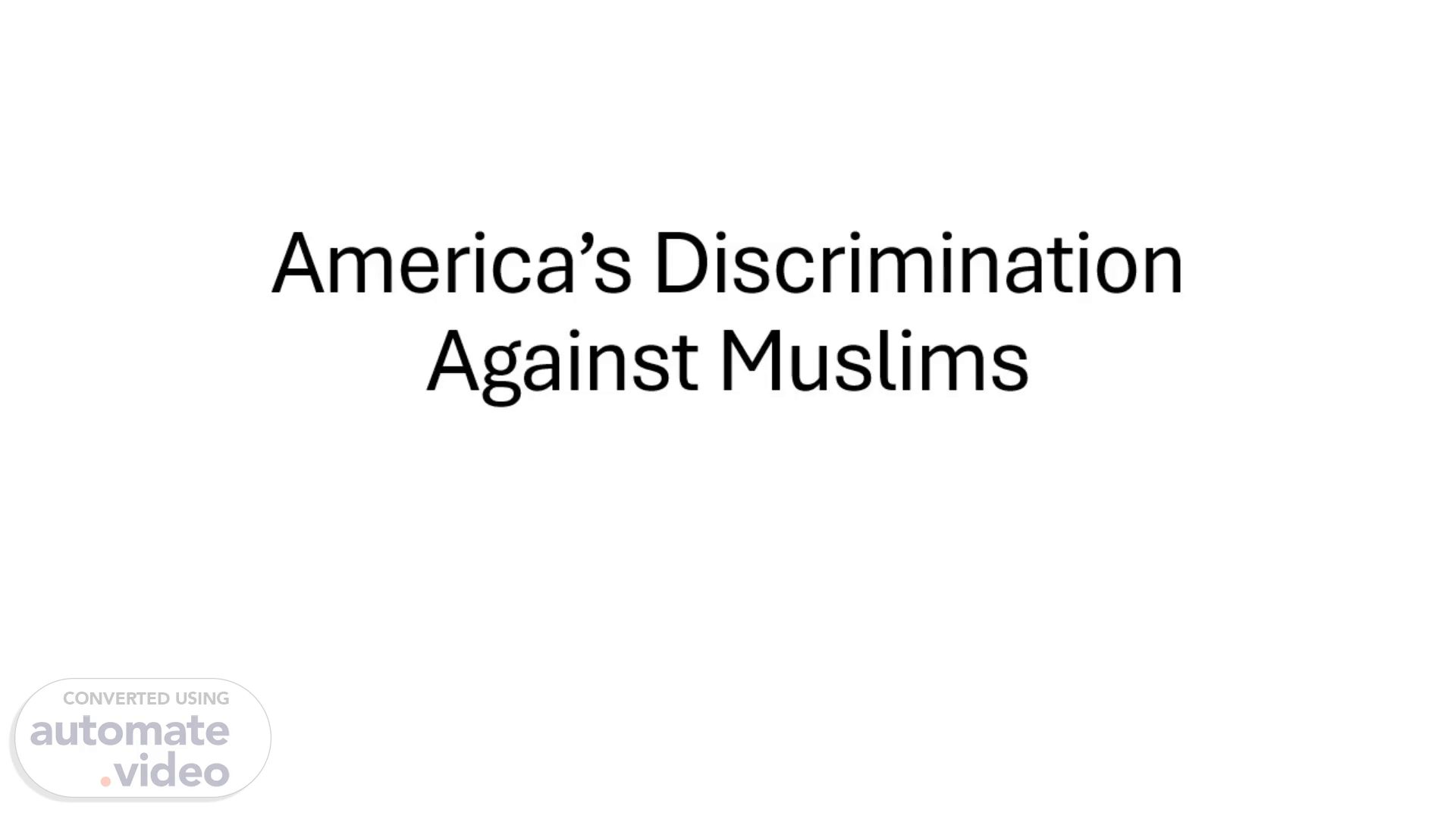Scene 1 (0s)
[Audio] The presentation welcomes viewers to a discussion about America's discrimination against Muslims, which will examine the significant problems and obstacles faced by Muslim Americans today..
Scene 2 (11s)
[Audio] The USA Patriot Act, also known as the Patriot Act, was passed in response to the September 11 attacks. This legislation expanded the authority of law enforcement agencies to gather intelligence and conduct surveillance on individuals and organizations suspected of terrorism. The act also increased penalties for terrorist-related crimes and authorized the use of military tribunals to try non-citizens accused of terrorism..
Scene 3 (39s)
[Audio] The Patriot Act was enacted in response to the 9/11 terrorist attacks. It was signed into law by President George W. Bush on October 26, and it was passed by the U.S. Congress with bipartisan support. The act allowed law enforcement and the intelligence community to investigate law-abiding Americans, almost exclusively Muslim Americans, without the need for any warrants. They were also able to put gag orders on individuals and detain any American not born in the USA indefinitely without due process of law, based on a suspicion that they might be affiliated with terrorism..
Scene 4 (1m 15s)
[Audio] The Patriot Act has had several effects on Muslim Americans. Increased surveillance and monitoring of their activities have led to feelings of mistrust and suspicion towards the government. The restriction on civil liberties, including the right to privacy and freedom of association, has made it difficult for Muslim Americans to practice their religion freely. Furthermore, the Act has also led to profiling and discrimination against Muslim Americans, causing them to feel like second-class citizens..
Scene 5 (1m 45s)
[Audio] The data reveals that the Patriot Act was met with disapproval from Muslim Americans. Moreover, its popularity decreased significantly among those who were not born in the United States. This implies that there may have been apprehensions regarding the effects of this legislation on their daily lives and social circles..
Scene 6 (2m 4s)
[Audio] The Trump Travel Ban, also known as Executive Order 13769, was signed by President Donald Trump on January 27, 2017. The order aimed to restrict travel from seven predominantly Muslim countries: Iran, Iraq, Libya, Somalia, Sudan, Syria, and Yemen. The ban targeted nationals from these countries who were seeking entry into the United States, including refugees and individuals with valid visas. The order was met with widespread criticism and legal challenges, citing concerns over its potential impact on national security, human rights, and religious freedom. The ban was eventually blocked by federal courts, but it remains a controversial topic in American politics..
